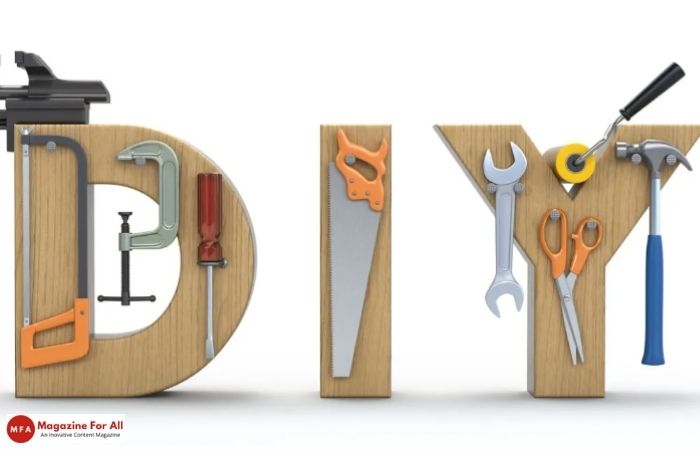When the pandemic began in 2020, millions of Americans were forced into their homes for an extended period. The longer they stayed there, the more they were forced to evaluate the condition of their homes. Many discovered that their living spaces were in need of some serious updates and repairs.
Though the home improvement market had already been very strong, the pandemic accelerated it to new heights. To save money, and partially because of so many businesses closing, many of these homeowners decided to tackle the projects themselves.
Do-it-yourself, or DIY, became a huge trend at that time when it was already a popular concept. The skills needed to conduct these projects are often complex, and there is no better teacher than experience. There are plenty of benefits to learning DIY skills, so let’s discuss how they can make life a little easier.
Table of Contents
Saving Money on Repairs
When you apply the right DIY skills to the different features of your home, you’re taking better care of those things. Maybe you learned how to take apart an old faucet fixture and put a new one in, which showed you the inner workings of these systems. Now, you have a better idea of what to look for in terms of wear and tear on your plumbing fixtures. By understanding how these systems work and what can go wrong, you can take preventative steps to reduce the chance of costly repairs in the future.
Avoiding Labor Costs
When you hire a contractor for a home repair or improvement project, you will have to spend additional money on the cost of labor. The people who do the work need to be paid for their expertise, whereas a money-saving DIY approach only requires you to pay for the materials used for the project. This is one of the main reasons why so many homeowners elect to do things themselves. Labor costs can be expensive depending on the scope of your project, so if you have the knowledge and tools needed for the job, you can save a lot of money by avoiding those labor costs.
Gaining a Sense of Pride
One of the more intangible benefits of learning DIY skills is that they can provide you with a sense of pride. Paying for contractors to do your home improvement can certainly be satisfying, but there is another level of accomplishment that comes with doing it yourself. You can look at the finished product and say “I made that happen.” This way, you can be proud of the knowledge you have gained and apply it to make repairs and improvements in your home that no one else can claim credit for.
Flipping Houses/BRRRR Method
Maybe you want to use your handy skills to generate some income for your family. The more DIY skills you have, the more you can get done on a property yourself for a lower cost than a contractor. Some investment strategies that this can support are flipping houses and the BRRRR method. Flipping houses involves buying distressed properties, fixing them up, and then selling them for a profit. What is BRRRR investing? It is similar to flipping houses but instead of selling the repaired property, you rent it out and then refinance to help purchase another distressed property. If you have a wide range of DIY skills, the repair process for both strategies can be more cost-effective, as long as you know what you are doing.
Managing Rental Properties
Another form of real estate investing involves rental property ownership. There are long-term rental properties like apartments and multi-family homes, but there are also short-term rental properties like Airbnb for vacationers and other types of travelers. Paying a management company or contractor to take care of the rental properties you own costs money. However, if you have the time and abilities, you can handle much of the upkeep and maintenance yourself. This will save you money on typical maintenance expenses so that your investment can churn out greater profits for you.
DIY Skills Do Not Make You a Professional
Although there are many benefits to learning DIY skills, you always have to know your limits. A couple of completed home projects do not make you an expert carpenter or electrician. There is always far more to learn about these subjects before you have similar knowledge to a professional. This is why every project should be approached with caution as a DIYer. Some may be far too complex for a person to handle, even if they have done a high number of simpler projects in the past. Know what your limits are and do not try to save money on labor if it means your home will not be safe because of poor construction or ill-informed repairs.































































